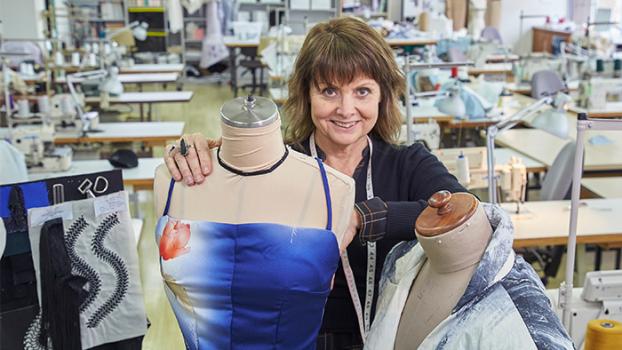
Fashion designer
Fashion designers are responsible for creating the designs for clothing and lifestyle accessories. They develop new styles and products and adapt existing fashions to suit new trends or different conditions. They may design surf or sportswear for sale in retail stores, or may work for exclusive boutique designers whose clothes are sold at select locations around the State, nationally or internationally.
Although not typically responsible for actually creating the clothes or accessories that they design, fashion designers sketch their designs, either by hand or computer.
Working conditions
Fashion designers may work in offices, workrooms, factories or clothing stores. They work at drawing boards, cutting tables and on sewing machines, and as a result may stand for significant portions of their work day. They may travel to factory sites or internationally to fashion shows.
Tools and technologies
Fashion designers usually work at work benches using pencils, paper and other sketching tools, and they may also be required to use computer software to design items of clothing. They may also work at cutting tables where they use scissors and other sewing tools to cut fabric. They are also required to be familiar with sewing machines in order to sew fabric and create mock-ups of their designs. Fashion designers also work with a wide range of different fabrics.
Education and training
It is possible to work as a fashion designer without any formal qualifications. However, entry into this occupation may be improved by obtaining a qualification in fashion design or a related area.
The Certificate IV, Diploma and Advanced Diploma of Applied Fashion Design and Merchandising are offered at TAFE colleges throughout Western Australia. Browse courses through Jobs and Skills WA - external site and search on the My Skills website - external site to find a registered provider near you.
You can also complete a degree majoring in fashion design. Curtin University and Edith Cowan University both offer a Fashion Design major within their Bachelor of Design courses. Contact the universities you are interested in for more information.
Free support and assistance
Your local jobs and Skills Centre can provide free information, support and assistance to help you decide on the best training options to meet your goals.
Disclaimer
The information presented on the occupation profiles within this website is offered as a guide only.

